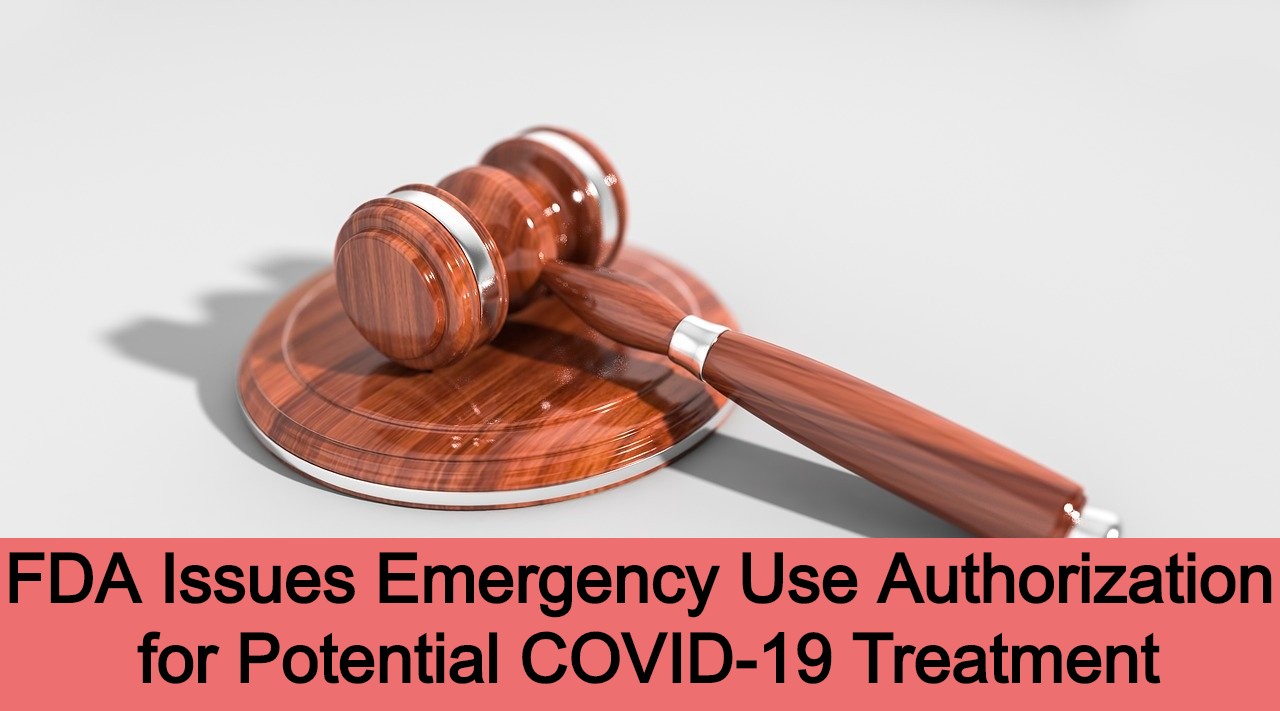
U.S. Food and Drug Administration issued an emergency use authorization for the investigational antiviral drug remdesivir for the treatment of suspected or laboratory-confirmed COVID-19 in adults and children hospitalized with severe disease. While there is limited information known about the safety and effectiveness of using remdesivir to treat people in the hospital with COVID-19, the investigational drug was shown in a clinical trial to shorten the time to recovery in some patients.
The emergency use authorization allows for remdesivir to be distributed in the U.S. and administered intravenously by health care providers, as appropriate, to treat suspected or laboratory-confirmed COVID-19 in adults and children hospitalized with severe disease. Severe disease is defined as patients with low blood oxygen levels or needing oxygen therapy or more intensive breathing support such as a mechanical ventilator.
Based on evaluation of the emergency use authorization criteria and the scientific evidence available, it was determined that it is reasonable to believe that remdesivir may be effective in treating COVID-19, and that, given there are no adequate, approved, or available alternative treatments, the known and potential benefits to treat this serious or life-threatening virus currently outweigh the known and potential risks of the drug’s use.The EUA also requires that fact sheets that provide important information about using remdesivir in treating COVID-19 be made available to health care providers and patients, including dosing instructions, potential side effects and drug interactions. Possible side effects of remdesivir include: increased levels of liver enzymes, which may be a sign of inflammation or damage to cells in the liver; and infusion-related reactions, which may include low blood pressure, nausea, vomiting, sweating, and shivering.
Following the declaration by the Secretary of HHS that circumstances exist justifying the emergency use of unapproved products, the FDA may issue an emergency use authorization to allow unapproved medical products or unapproved uses of approved medical products to be used in an emergency to diagnose, treat, or prevent serious or life-threatening diseases or conditions caused by chemical, biological, radiological and nuclear threats when there are no adequate, approved, and available alternatives.
The issuance of an EUA is different than FDA approval. In determining whether to issue an EUA, the FDA evaluates the available evidence and carefully balances any known or potential risks of any unproven products with any known or potential benefits of making them available during the emergency.
The EUA was issued to Gilead Sciences Inc. The FDA previously allowed for study of the investigational drug under clinical trials, as well as expanded access use for individual patients and through a multi-patient expanded access program coordinated by Gilead.
The EUA will be effective until the declaration that circumstances exist justifying the authorization of the emergency use of drugs and biologics for prevention and treatment of COVID-19 is terminated and may be revised or revoked if it is determined the EUA no longer meets the statutory criteria for issuance.
Subscribe to PharmaTutor News Alerts by Email













